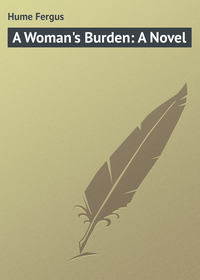Kitabı oku: «A Woman's Burden: A Novel», sayfa 2
Bir şeyler ters gitti, lütfen daha sonra tekrar deneyin
4,0
2 puan
Türler ve etiketler
Yaş sınırı:
12+Litres'teki yayın tarihi:
10 nisan 2017Hacim:
320 s. 1 illüstrasyonTelif hakkı:
Public Domain